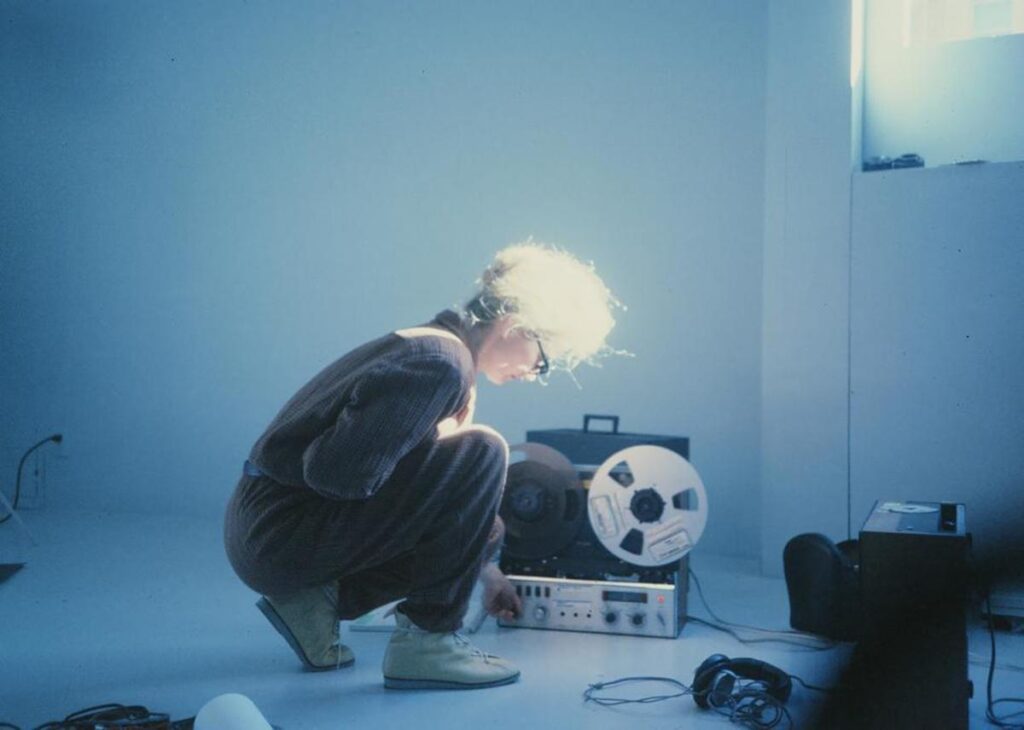Putting a much-needed spotlight on electronic music's founders, new documentary Sisters with Transistors seeks to tell the story of the genre's origins and, most importantly, the lesser known women who made modern electronic music possible.
Sisters with Transistors, which premiered earlier this year at SXSW, Sheffield Doc Fest and CPH:DOX, where it won a special mention in the Next Wave award category, is now slated for a screening at the upcoming AFI Fest, hosted by the American Film Institute. With the event taking place from October 15th to 22nd, Sisters with Transistors is one of seven LGBTQ films to be featured, according to Q Voice News. You can watch it on October 17th at 12PM PT.
Diving into the origins of electronic music in the early 20th century, the film will highlight female music composers who pioneered the use and development of machines and technologies that ultimately formed the basis for today's production tools. Even more, Sisters with Transistors will highlight the lack of awareness about these women, sharing a deeper message about gender-based discrimination in the industry and their resulting erasure from mainstream music history. "The history of women has been a history of silence," the film's website reads. "Music is no exception."
"Storytelling is not neutral. It either upholds or disrupts the status quo, advances or regresses social justice," writer and director Lisa Rovner wrote in a piece for Women and Hollywood. "Filmmaking is thus always political. That’s why I decided on a form featuring multiple heroines whose stories are told subjectively."
Sisters with Transistors is the feature length documentary debut for Rovner. Iconic vocalist, composer, instrumentalist and visual artist Laurie Anderson narrates the film.
Comprised mainly of archival footage, it interweaves the stories of nine women, including Daphne Oram, who was one of the first composers to incorporate field recording samples into music, Clara Rockmore, who elevated electronic music's status to be appropriate for concert hall performances, and Delia Derbyshire, who arranged the Dr. Who theme in 1963—one of the first purely electronic compositions shared on television.
"We women were especially drawn to electronic music when the possibility of a woman composing was in itself controversial," said Laurie Spiegel, who is also featured in the film. Spiegal developed Music Mouse, one of the earliest music composition softwares available to consumers. "Electronics let us make music that could be heard by others without having to be taken seriously by the male-dominated establishment."
Also featured in the film is Pauline Oliveros, who began her work in the 50s working with tape music techniques. Oliveros, who identified as a lesbian—thus qualifying the film for its LGBTQ categorization—was one of the first women to speak out about gender inequality in music. In 1970, an opinion piece that ran in the New York Times began with the question, "Why have there been no 'great' women composers?"
Sisters with Transistors will appear alongside other documentaries, both short and long-form, along with scripted content and film industry panels and discussions. A documentary roundtable discussion will take place right after the film's showing at 1PM PT. You can register for the festival here.
FOLLOW SISTERS WITH TRANSISTORS:
Facebook: facebook.com/sisterswithtransistors
Twitter: twitter.com/siswtransistors
Instagram: instagram.com/sisterswithtransistors
Website: sisterswithtransistors.com
FOLLOW AFI FEST:
Facebook: facebook.com/afifest
Twitter: twitter.com/afifest
Instagram: instagram.com/americanfilminstitute
Website: fest.afi.com



